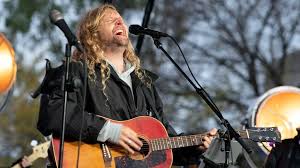
Introduction
Sean Feucht has emerged as a prominent figure in both the music world and social activism. His unique blend of contemporary worship music and a fervent commitment to social issues has resonated with many, particularly during challenging times. With an increasing presence on social media and various platforms, Feucht draws attention not only for his musical talents but also for his outspoken views on faith, culture, and societal healing.
Rise to Prominence
Feucht, a worship leader, singer, and songwriter, gained popularity through his albums and performances which emphasize themes of hope, revival, and unity. His music has played a critical role in many church services across North America and beyond. He is well-known for his songs such as “Wild” and “Praise Is The Highway,” which have become staples in contemporary worship.
Aside from his musical career, Feucht has made headlines through his activism. He is the founder of “Let Us Worship,” a movement that began amidst the COVID-19 pandemic, advocating for the right to gather and worship despite state restrictions. This initiative has spurred large worship gatherings in various cities, attracting thousands and generating significant discussions about religious freedoms and public health.
Current Events and Recent Activities
In 2023, Feucht continued his activism with nationwide tours, focusing not only on music but also on addressing critical social issues such as homelessness, racial injustice, and the right to free assembly. His events have gained traction, often attracting a blend of followers, including many from the Christian community as well as individuals who simply support his message of unity and hope.
Moreover, Feucht has frequently utilized social media to share his experiences and rally support for various causes. His Instagram and Twitter platforms boast hundreds of thousands of followers, making him a key voice in contemporary evangelical discourse. His outreach has not gone without criticism, reflecting the polarized climate of today’s socio-political landscape.
Conclusion
Sean Feucht’s journey as a musician and activist illustrates the potent intersection of faith, art, and social commitment. As he continues to impact audiences across the nation, the significance of his work remains clear: to foster hope and revitalize faith in times of uncertainty. Looking ahead, it is evident that Feucht will remain a pivotal figure, championing both the power of worship and the importance of civic engagement in shaping a better society. For readers interested in the affecting roles of musicians in social movements, Feucht offers a compelling case study of influence and inspiration.



